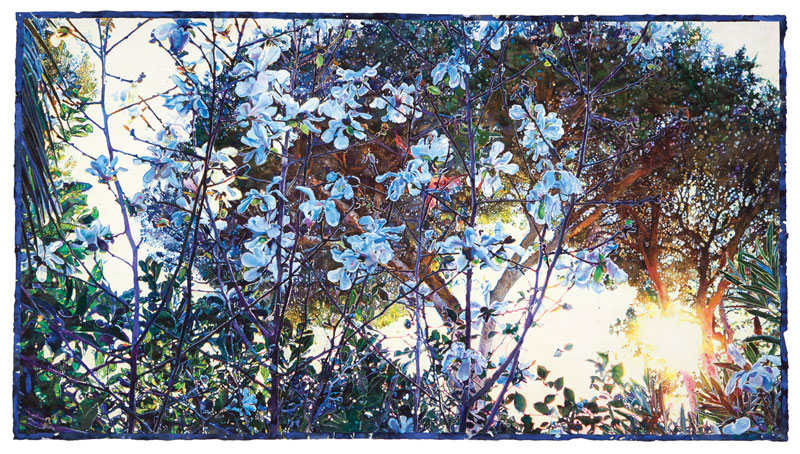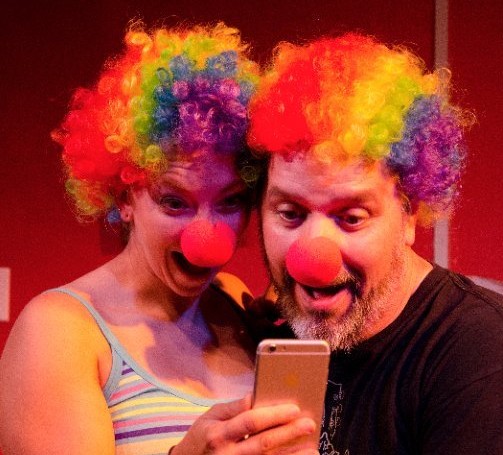While on stage at Playhouse Square, touring ‘Matilda’ stays true to Roald Dahl’s dark, delightful children’s book
By Bob Abelman
One of the four Tony Awards won by “Matilda The Musical” in 2013 was Best Book of a Musical for playwright Dennis Kelly’s adaptation of Roald Dahl’s children’s story.
The award was well deserved, for it is remarkable how well Kelly’s script captures the darkly satirical, warped and wonderful world created by Dahl — a world vividly imagined during bedtimes in millions of homes where children begged their parents for “just a few more minutes” to finish reading a most remarkable chapter.
The story revolves around an ignored 5-year-old girl who uses the power of her mind and her love of books as weapons against ignorant, demoralizing and vicious adults.
Ignoring the advice from her self-absorbed mother that “looks is more important than books,” Matilda’s first impulse — like that of Lemony Snicket’s Violet Baudelaire and J.K. Rowling’s Hermione Granger from more recent novels — is to solve problems with her intelligence, deal with conflict with her imagination, and write her own narrative.
“Matilda” is Dahl’s only female-centric work and is told from a child’s perspective. As a result, the world in this musical version of the book — now on national tour and on stage at Playhouse Square — is abundantly playful.
And it is comprised of comically exaggerated characters like Matilda’s outrageous parents (the hilarious Quinn Mattfeld and Cassie Silva), the bullying Olympic hammerthrower-turned-psychotic headmistress Miss Trunchbull (a brilliant David Abeles in drag), and the angelic teacher Miss Honey (a silver-throated and absolutely charming Jennifer Blood).
Despite Kelly’s best efforts, the writing in the musical also inherits Dahl’s unpolished prose. This makes for some awkward, inconsistent and improbable storytelling, which plays better on the page than it does on stage.
Some of this is sidestepped by Kelly taking poetic license with the source material’s telling of Miss Honey’s backstory. Here, it is revealed through a story Matilda believes she invented that she shares, in bits and pieces, with the librarian Mrs. Phelps (a very endearing Ora Jones).
The story, which is beautifully and theatrically enacted during Matilda’s recitation, also reveals Matilda’s feelings about her hideous family, adds dimension to the powers she possesses, and offers much-needed tender moments to the production.
Dahl’s eccentricities are also addressed by the show’s producer, Britain’s Royal Shakespeare Company, employing the same strategy found in their production of “Les Miserables” — throw plenty of songs and huge production numbers at the show.
Many of Tim Minchin’s songs are wordy, quirky affairs made tedious by poor sound mixing that has plagued the tour since its start nearly a year ago. Lots of lyrics go unheard (so do some British accents, but the problem there is not technical nor as troublesome).
But some songs, like the exuberant second act opener “When I Grow Up” and the anthem “Revolting” that closes the second act, are absolutely delightful. And all of the songs are infused with impressive visual and sound effects, solid accompaniment by an orchestra directed by Matthew Smedal, and astoundingly innovative, Tony-nominated choreography by Peter Darling.
As he did when choreographing “Billy Elliot,” Darling complements each song’s sentiments with impulsive, pulsating movement that is absolutely mesmerizing. It is executed to perfection by an exceptionally talented ensemble of kids and young adults, and takes place within a gorgeous set designed by Rob Howell to resemble a pop-up picture book.
Sarah McKinley Austin as Matilda (she alternates the role with Lily Brooks O’Briant and Savannah Grace Elmer) is an adorable and impressive performer if not a completely engaging one. She hits all of the marks designed by director Matthew Warchus and hits all her notes, but with rote mechanics that lack the kind of charm one remembers from the book and the 1996 film featuring Mara Wilson.
Though the music in “Matilda The Musical” is not, collectively, memorable, Dahl’s story and this production’s eye-candy storytelling most assuredly is.
“Matilda The Musical” comes with a ready-made audience, so tickets will likely be scarce. Since the Broadway production will close at the end of the year after 1,555 performances, the touring production may be your last chance to see this musical. CV
On stage
WHAT: “Matilda The Musical”
WHERE: State Theatre, 1519 Euclid Ave., Cleveland
WHEN: Through May 22
TICKETS & INFO: $10-$110, call 216-241-6000 or visit playhousesquare.com
Bob Abelman covers theater and cultural arts for the Cleveland Jewish News. Follow Bob at Facebook.com/BobAbelman3
Originally published in the Cleveland Jewish News on May 8, 2016.











